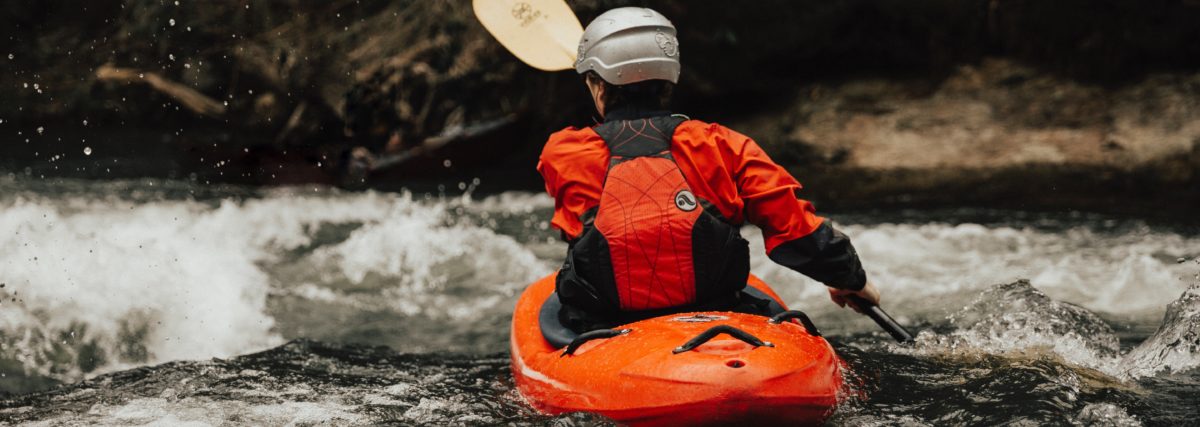Crocodiles, which can be anywhere from 10 to over 20 feet long, kill 1000+ people a year. However, crocodiles attacking kayaks or small boats is pretty rare unless the crocodile is territorial or hungry. It’s a frightening and potentially dangerous situation that can happen in many parts of the world.
It’s possible that local authorities may even issue a warning about croc activity near certain waterways. Thankfully, there are steps you can take to minimize the risk of an attack when you’re out kayaking.
With the proper precautions in place, you’ll be better equipped to handle any dangerous encounters with these powerful reptiles while you enjoy a day of kayaking.
Why Would Kayaks Attract Crocodiles?
Crocodiles, like alligators and sharks, are curious creatures by nature. This means that anything can attract their attention including small boats and kayaks. Kayaks sit low in the water possibly providing an easy target for the crocodile.
Also, kayakers make noise with their paddling, which would also attract a croc’s curiosity. If someone’s fishing from a kayak, the crocodile will take notice not only the smell of the bait you’re using but also of any fish splashing around that you may catch.
It is for this reason, especially, that you may not want to go fishing in a kayak where there is a known crocodile presence.
How To Avoid A Crocodile Attack While Kayaking
Kayaking where crocodiles hang out might seem like a thrilling adventure, but it can turn ugly quickly if you don’t follow the proper safety procedures and stay aware of your surroundings. Crocs are very territorial, so they can act in an aggressive manner if they feel threatened.
- It’s very important to first do some research about the area you plan to kayak in. Look for signs that warn of crocs and find out if there’s been a lot of sightings lately. They are more active during the warmer months and mostly from dusk to dawn.
- If you do go kayaking where crocodiles are known to gather, the best idea would be to paddle in a larger body of water as opposed to narrow canals or coves. Never feed or interact with a crocodile because it could agitate them, provoking an attack. It can also get them used to associating small boats and kayaks with food. Cover any food that you do have so they don’t smell it and swim over for a closer inspection. Keep your distance at all times and be aware that they can move very quickly.
- Always wear protective gear such as a life jacket and maybe even a knife to try to defend yourself should an attack happen. (The vest will help to keep you afloat while you try to fend off the croc).
- Finally, use common sense, listen to your intuition, and listen/look for warning signs. If you hear a lot of splashing and movements in the water, get away as quickly as possible. These reptiles are ambush predators, which makes them very dangerous, especially because they can blend into their environment very well. Always be on the lookout for eyes or snouts peeking out of the water, a disturbance in the plant life on the water, the verbal sounds they make, and the movement of the water.
What To Watch Out For Before A Crocodile Attacks
If a croc quickly swims your way, you can do one of two things. You can either paddle away as fast as possible to get to land or turn your kayak toward the croc and make a lot of noise. This might get them to back down by intimidating them.
Crocodiles may also make hissing noises before attacking. If you see a crocodile toward you with an open mouth, then it is most likely coming in for an attack and you should have your paddle ready to try to ward it off.
Watch for a churning in the water, which is a sign that the crocodile is using its tail to create thrust to jump out and attack. It may just be that they are being territorial and don’t want you in their space. All you can really do is use your paddle as a defensive tool in this situation or any other weapon you may have ready.
Final Thoughts
Crocodiles are definitely a danger to kayakers when they decide to paddle in the croc’s natural habitat. Despite this, it’s important to know that crocs won’t attack kayaks unless they are provoked, hungry, or territorial. They usually stay away from humans in most situations.
By following the safety tips above, such as avoiding areas known for crocodile activity, staying alert for signs of that activity, and keeping your distance, you can reduce the risk of an encounter or attack.
With the proper precautions in place, you’ll be able to enjoy your time on the water and if you do the research, you may not have to worry about crocodiles at all.
